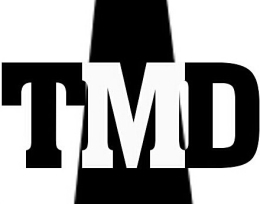Alongside artists like Gary Stewart and Gene Watson, Moe Bandy broke through in the 1970s off of a hard-edged honky-tonk style that was different from both the outlaw-inspired songs of the days as well as the pop-crossover smash hits. His songs were so powerful, in fact, that his label home, Columbia Records, asserted that his string of honky-tonk weepers led to broken marriages and a virtual epidemic of cheating … as part of a promotional campaign, naturally.
In truth, Bandy’s greatest asset from the time he released his independent breakthrough record in 1974 to the time he left Columbia Records in 1986 was his simple approach. In comparison to his two aforementioned contemporaries, Bandy didn’t have Stewart’s vivaciousness as a performer, and he didn’t have Watson’s huge range. His no-nonsense, no-apologies approach was supported by a simple winning combination of weeping pedal steel, aching fiddles, and ragged electric guitars, all of which revived a tradition of East Texas honky-tonk on country radio dials.
Born in Meridian, Mississippi, in 1944, Bandy’s grandfather reportedly worked on the railroad with a man who would go on to have his own fruitful – if short – career in the music business: Jimmie Rodgers. Soon, however, San Antonio, Texas, would become Bandy’s home, and the place where music came calling for him. He joined his father’s local band, The Mission City Playboys, and in 1962 formed his own band, Moe and the Mavericks. His first commercial recording was the self-penned “Lonely Lady” in 1964.
A decade later, while working as a sheet metal worker by day and playing in local clubs by night, Nashville producer Ray Baker became Bandy’s manager. Baker agreed to cut a record with Bandy, but only if he would pay for the session. Bandy sold his furniture to come up with $900 to record “I Just Started Hatin’ Cheatin’ Songs Today,” of which 500 copies were pressed and became a national hit across the country … even if it took him over a year to crawl out of debt from the recording. The single was released through the independent GRC label; Bandy signed with Columbia Records in 1975. Several more hits followed, like “Bandy the Rodeo Clown,” co-written by Whitey Shafer and Lefty Frizzell, “Hank Williams, You Wrote My Life,” written by Paul Craft, and “It Was Always So Easy (to Find an Unhappy Woman).” Bandy’s clean-cut looks stood in sharp contrast to the otherwise dark songs of cheating, drinking, and misery that he placed on the charts. The themes were never planned; the songs just happened to come along (Bandy was always swift to point out how he didn’t advocate cheating).
Bandy’s winning formula resulted in consistent success, but only ever one No. 1 hit as a solo artist, through “I Cheated Me Right Out Of You,” which reached the top as the world welcomed the 1980s. And as Bandy himself entered the new decade, so, too, did his sound. He teamed up with Joe Stampley for several years, recording material meant to exploit the stereotypes associated with the “good ol’ boy” archetype through songs marked by self-mockery, humor, and good-natured fun. The overall positive direction carried through in Bandy’s own solo material, where even though his solo success started to slip around 1983 – thanks to the growing Urban Cowboy sound and newer neotraditional acts in George Strait and Ricky Skaggs that threatened Bandy’s own position – he signed a new contract with MCA a few years later and found a slight career rejuvenation. Rather than dark, sordid affairs this time around, “Too Old to Die Young” was a poetic ballad carried by fiddles, and “Americana” was a story song that eschewed the overblown patriotism and cloying nature that marked other songs of the era, like, say, Lee Greenwood’s “God Bless the U.S.A.”
The 1990s marked another shift. Bandy opened his country music theater in Branson, Missouri, a family-oriented touring destination that allowed him to play good, lengthy shows … even without his earlier “cheatin’ songs” to help guide him. Still, despite the all-too-short time period in which they hung around, Bandy’s honky-tonk tunes are among the finest within the genre, and on a night of serious drinking, Bandy is still the perfect accompaniment for one’s soundtrack.


Moe Bandy is absolutely one of my ’70s favorites. I’m lucky enough to have gotten the CD reissues of some of his albums back when they were widely available, and I always have a blast listening to them. I love how his music basically takes what people who dislike country music stereotype it as and completely runs with it.
LikeLiked by 1 person
Lol, yep. Perfect way to describe Bandy. You’re lucky, though. He’s one of those artists who unfortunately has just had his catalog lost to obscurity outside of obvious classic singles and albums. It’s a real shame.
LikeLike
Also a big Moe Bandy fan-alas, some of his later works, circa mid-1980’s a hit hard to find…. Will always be a fan!
LikeLiked by 1 person